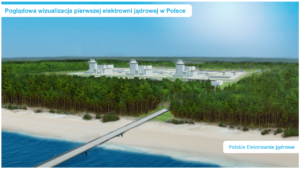PGNiG will announce the future of the Yamal contract this year. Why should it not be prolonged? – writes Wojciech Jakóbik, editor-in-chief of BiznesAlert.pl.
PGNiG deputy president Maciej Woźniak said that the decision about the future of the Yamal contract must be made this year. He revealed that, as previously announced, the company will present its decision „with an indication” not to extend the contract.
There is no return to the past. One can imagine a scenario in which the Russians will want to stop their participation on the Polish gas market, where they transport about 8 billion cubic meters of natural gas annually, tempting PGNiG with a discount offer under the Yamal contract. This would be a move analogous to that made in Ukraine, where they tempt Naftogaz with the prospect of cuts, which would be welcomed by the electorate experienced by gas price increases as a result of the reform in line with European regulations.
The offer, however, has a hidden hook. Ukrainians would have to negotiate without the European Commission’s renewal of an existing contract that would not be in line with EU legislation, and therefore would not contain provisions protecting against the abuse of Gazprom and would maintain controversial clauses on destination rejection or with a minimum mandatory volume (take or pay). The same would probably happen to Poles who, in exchange for a lower price of gas, would receive a number of other records from the previous era, which are included in the Yamal contract. Although the offer would tempt the voters and could appear, for example, before the parliamentary elections in 2019, it is good to suppress the appetite.
This does not mean, however, that Russian gas will not reach Poland after the end of the Yamal contract expiring in 2022. It is possible to conclude a new contract, under different conditions, which would probably be better, and the contract could be adapted to European regulations. If necessary. PGNiG intends to minimize purchases from Russia until 2022, and then perhaps even replace them with imports from other directions: from Norway, the USA and others. Freedom of choice sanctioned by infrastructure – LNG terminal and Baltic Pipe – will allow to reach for the best offer.








